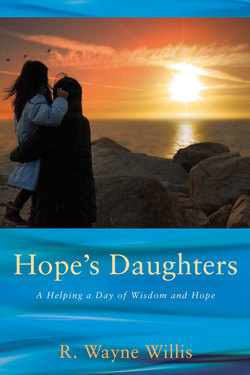Читать книгу Hope’s Daughters - R. Wayne Willis - Страница 22
На сайте Литреса книга снята с продажи.
January 15
ОглавлениеSome of the new words in dictionaries are “google” used as a verb and “sexting” for sending sexually explicit pictures over a cell phone. If I could coin one word to become part of our vocabulary, it would be hopenomics.
The word economics comes from two Greek words, oikos meaning house and nomos meaning law. An economist was originally one who “laid down the law” in managing the treasures of a household (or city or nation). The emphasis in the word is on stewardship—distributing assets wisely, responsibly, and resourcefully.
Most of us mean to be conscientious economists. We draw up budgets, pay off credit cards, give children allowances, and diversify investments. We intend to care for our assets wisely and responsibly. What would it look like if we applied commensurate intentionality and acumen to hope?
What if parents majored in keeping a sparkle in their children’s eyes over signing them up for everything and setting the bar for parental approval sky-high? What if marriages majored in thoughtfulness and affirmation of each other over acquiring the next thing and rising one more rung on the social ladder? What if teachers were free to fire students’ imaginations and encourage critical, creative thinking over teaching them to memorize answers for the next test? What if preachers majored in lifting up parishioners’ spirits and fortifying them for Monday struggles and inspiring them to serve suffering humanity over indoctrination on parochial niceties and dissing those who disagree?
Hopenomics, simply put, values people over things, integrity over appearances, goodness over rightness, and lifting others up over pulling them down. Hopenomics also requires us to ask, according to the Great Law of the Iroquois, how our actions today will affect the well-being of children seven generations out.
